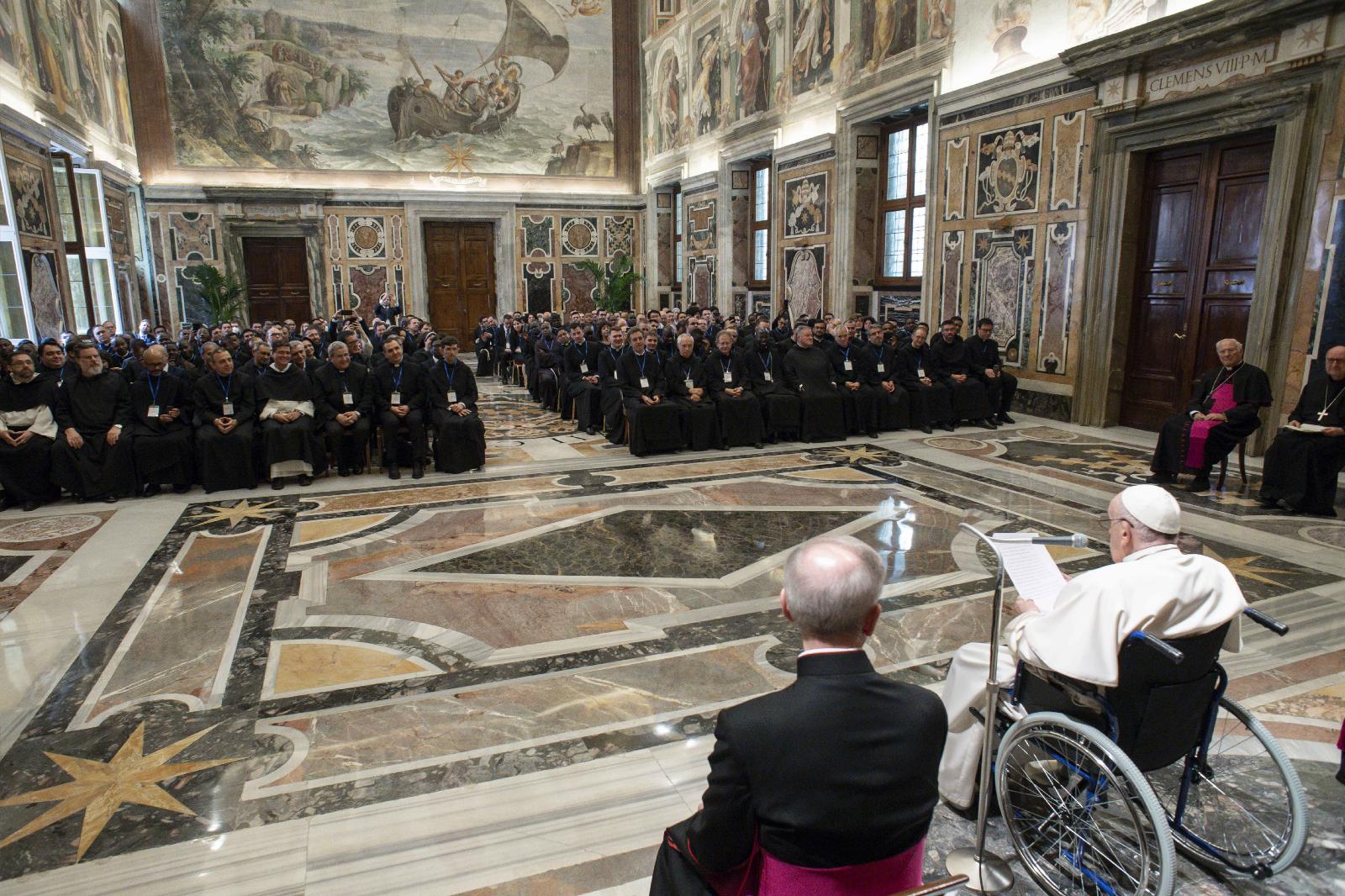The Catholic liturgy must not be “exploited” by those seeking to further a particular ideological vision, Pope Francis says today in a new apostolic letter on the liturgical formation of the people of God.
Having written already to Catholic bishops worldwide in the controversial Motu Proprio Traditionis custodes, Pope Francis has in today’s letter, Desiderio desideravi, extended the discussion to the entire Church, reinforcing his criticisms of people who do not accept the liturgical reforms of the Second Vatican Council.
Emphasising the centrality of the liturgy in the life of the Church, Pope Francis says: “It is not magic. Magic is the opposite of the logic of the sacraments because magic pretends to have a power over God, and for this reason it comes from the tempter.”
He continues: “With this letter I simply want to invite the whole Church to rediscover, to safeguard, and to live the truth and power of the Christian celebration. I want the beauty of the Christian celebration and its necessary consequences for the life of the Church not to be spoiled by a superficial and foreshortened understanding of its value or, worse yet, by its being exploited in service of some ideological vision, no matter what the hue.”
The liturgy is “antidote for the poison of spiritual worldliness”, he says, a theme he has addressed on previous occasions including in the exhortation Evangelii gaudium. He criticises in particular those who, instead of evangelising, analyse and classify others, and instead of opening the door to grace, exhaust their energies in inspecting and verifying. “These distorted forms of Christianity can have disastrous consequences for the life of the Church.”
The liurgy is “the most effective antidote against these poisons”, he says. “Obviously, I am speaking of the liturgy in its theological sense and certainly not... liturgy as decorative ceremonies or a mere sum total of laws and precepts that govern the cult.”
He cointinues: “The continual rediscovery of the beauty of the liturgy is not the search for a ritual aesthetic which is content by only a careful exterior observance of a rite or is satisfied by a scrupulous observance of the rubrics.”
The fundamental question is how to recover the capacity to live completely the liturgical action, the objective of the reforms of the Second Vatican Council. “The challenge is extremely demanding because modern people – not in all cultures to the same degree – have lost the capacity to engage with symbolic action, which is an essential trait of the liturgical act.”
Pope Francis says that with post-modernity, people feel themselves even more lost, without references of any sort, lacking in values because “they have become indifferent, completely orphaned, living a fragmentation in which an horizon of meaning seems impossible”. The problems are individualism, subjectivism and an abstract spiritualism.
“It would be trivial to read the tensions, unfortunately present around the celebration, as a simple divergence between different tastes concerning a particular ritual form,” the Pope says. “The problematic is primarily ecclesiological. I do not see how it is possible to say that one recognises the validity of the Council – though it amazes me that a Catholic might presume not to do so – and at the same time not accept the liturgical reform born out of Sacrosanctum Concilium, a document that expresses the reality of the Liturgy intimately joined to the vision of Church so admirably described in Lumen gentium.”
The non-acceptance of the liturgical reform shows the need for “serious and dynamic liturgical formation”, he says.
This is a responsibility for all, for ordained ministers and the faithful, but the task is not easy “because modern man has become illiterate, no longer able to read symbols; it is almost as if their existence is not even suspected.”
In addition, today in his homily on the Feast of St Peter and St Paul, when he blessed the palli for newly appointed metropolitan archbishops, Pope Francis warned against “the perversion of clericalism”.
He said: “We must certainly not shut ourselves up in our ecclesial circles and get stuck in some of our sterile discussions. Be careful not to fall into clericalism, clericalism is a perversion. The minister who becomes a clerical with a clerical attitude has taken a wrong path; even worse are the clericalised laity.”
He criticised “the temptation of nostalgia that makes us look at others were better times – please do not fall into backwardness, this backwardness of the Church that is fashionable today.”



 Loading ...
Loading ...